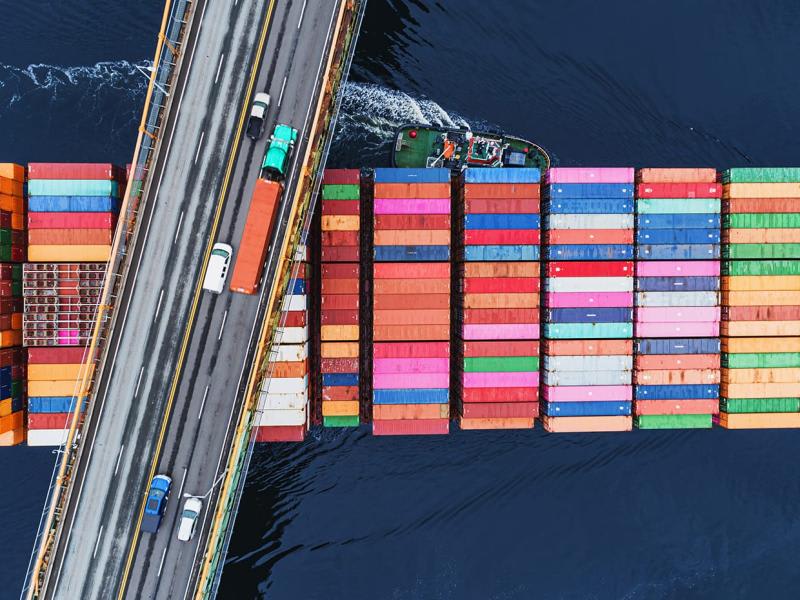It is not an exaggeration to say that the COVID-19 crisis has created more challenges to modern business than any event in modern history. All over the world, the effects are obvious: GDPs are down, markets are down, production is down, employment is down, and most importantly, spirits are down.
But amidst all of the bad news, one thing is looking up: innovation. Throughout the crisis, we have seen flashes of invention and creativity that are a testament to the resilience of the human spirit. Within our professional realm, where the basic concept of survival is at stake, we are seeing collaboration, adaptation, and risk-taking like never before. Problem solvers are emerging from the woodwork to tear down silos, iterate on the fly, and develop solutions to challenges many of us never thought we would face.
Could it be that this global crisis has actually been beneficial in some ways? As it turns out, pressure is a great motivator for innovation.
Collaboration is key
One of the most inspiring things we have seen amongst our member firms has been the rise of multidisciplinary ‘COVID-19 cross-functional teams’, which have formed to proactively consider the issues impacting businesses and devise solutions to mitigate risk, to utilise and optimise resources effectively, or to leverage new opportunities in some cases.
As within a corporate setting, it is highly unlikely that any one department or individual will have all the insight, context, and resources to deal with a challenge effectively. RSM’s culture is based on collaboration, and this new approach has meant that the best and brightest minds have been on hand to identify opportunities that others might have missed. The world has been united by a common cause, and both within and outside of RSM, we are recognising more than ever before that by combining efforts, we draw upon all of our strengths.
In non-COVID-19 times, this level of collaboration can take time to materialise. But the impact of the Coronavirus has meant that many middle market businesses had to change overnight, and are now in a continuous state of re-evaluation, adaptation, and change. Our leaders and Centres of Excellence have also been adapting and undergoing a process of reimagination with a focus on anticipating various scenarios and being ready to support middle market businesses as they navigate their way through uncertainty.
Learning how to pivot quickly
At RSM International, we have faced some unprecedented challenges of our own with our regional conference season. Over the years, these conferences have provided us with the opportunity to connect in person with our RSM colleagues and share ideas and insights from all over the globe. Obviously, social distancing forced all these planned face-to-face events to be exchanged for virtual conferences and training.
The events industry has been massively impacted and transforming physical events into virtual events is no easy task, and understandably resulting in many cancelled events. Even the smallest event can require weeks and even months of planning. By the time COVID-19 was reverberating across the world, the train had already left the station on many of these events, so to speak.
Fortunately, the RSM International team moved quickly, and was able to transition the planned face-to-face events into a series of engaging, informative, interactive, and entertaining virtual conferences across our network. For RSM, like many other businesses, our culture and sense of community is critical for the well-being of our people and instrumental in delivering against our global strategy, so it was important to maintain our connections with one another. Therefore, there was never any question that we would not deliver our regional conferences. The only challenge for the team was to work out the best way to do so, while considering what would be comfortable for the attendees and how to engage them, hold their attention, and how to make it a valuable experience. I am very proud that our team and member firms have stepped outside their comfort zone, were prepared to make mistakes, learn quickly, and moved with speed. In a crisis like this one, reaction time and quick thinking can be the difference between companies that thrive and adapt, and those that get left behind.
The entrepreneurial spirit is alive and well
Since the beginning of the lockdown, we have heard stories of businesses switching gears to help fight the pandemic. Canadian sports equipment manufacturer Bauer pivoted from making hockey masks to creating medical face shields. ExxonMobil took a page from spirits manufacturers and began making its own hand sanitiser and McLaren Formula 1 transformed its Grand Prix workshop to make ventilators to address the shortage in the UK, examples of well-known brands around the world responding to needs with a new sense of community.
The industry impact of COVID-19 has been severe, particularly in the travel and hospitality sectors and it may be some time before there is a full recovery. However, here too, we have seen innovation in the middle market. We are seeing hotels renting out rooms as ‘virtual solo offices’ while others reactivating their businesses are using blockchain to provide reassurance to guests that the right cleaning has taken place prior to occupancy.
These organisations did not wait for permission or host a series of internal meetings to determine the right course of action. They simply acted. That is the very essence of innovation and entrepreneurial spirit - the willingness to move fast, fail often, and learn quickly.
Innovation in the face of adversity
Complacency is a risk for us all, so it is natural that we sometimes forget to push ourselves as hard as we should. And it is particularly easy for businesses to rest on their laurels when economies are thriving, and markets are soaring.
But as the American actor Denzel Washington said during his speech to the NAACP, ‘Ease is a greater threat to progress than hardship’. The difficulties and challenges of this crisis have forced many of us to step outside of our comfort zones, and that is where true innovation happens.
Yes, COVID-19 has exposed some of our weak areas, but it has also illuminated the resilience of the human spirit. While the challenges of this era have brought a significant level of pain and distress to many people, we have also seen some inspiring examples of community, creativity, and collaboration. My hope is that this newfound enthusiasm for progress and innovation will not only carry us beyond the COVID-19 era – it might just be A new way forward.








